Blog
Q: How long do I have to dispute a result?
A: USDTL saves negative specimens for seven days after initial accessioning. Seven days is longer than the customary three days that most labs retain negatives. This duration should allow clients a reasonable time to decide if dispute resolution is needed, to contact customer service and initiate the process. Positive specimens are stored frozen for one year following accessioning. Our Client Services Representatives will provide you with the necessary paperwork for you to sign and return to initiate the re-test process. Once the paperwork is in order, Client Services will return a re-test result to you in one to two working days. If you have any questions after receiving the results, please contact Client Services and they will either assist you or direct you to one of our forensic toxicologists to discuss the case with you.
October 31st, 2011, The American Academy of Pediatrics sets a new policy telling doctors that screening for drug/alcohol use should be a routine part of a teen’s regular doctors visits –http://bit.ly/roWQux
My question is, if adults lie to their healthcare providers about their alcohol and drug use, why wouldn’t teens? Why not recommend an unbiased-test based on a hair or nail sample. This would give pediatricians a solid factual history to help improve the health of their patients.
We offer a wide variety of hair and nail testing that can identify actual use or misuse and possibly save a life.
Check out our website: https://www.usdtl.com/ for more information.
Our fabulous staff, including our knowledgable toxicologists President Douglas Lewis and Vice President Laboratory Services, Joseph Jones, are at Booth #2108 to discuss our latest research in alcohol biomarkers and our new CordStatEtoh test.
Also there are fabulous Forensic Account Executive, Patrick Lavelle, and Sales Associate and all around Girl Friday, Victoria Lewis.
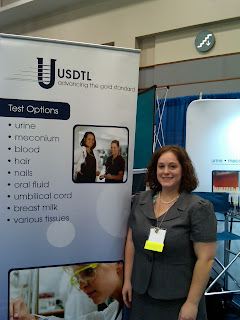
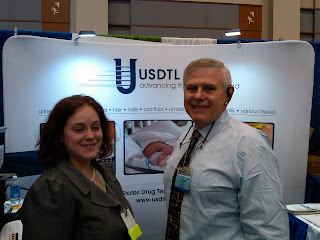
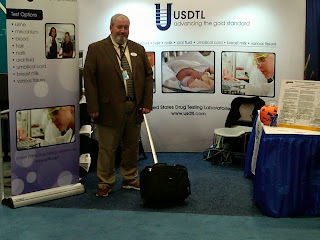.jpg)
Stop by and say hi!
Follow us on twitter @USDTL Hashtag #APHA
“Like” us on Facebook www.facebook.com/USDTL
Partnering with USDTL for Professional Health Services
We care for the Health and Well-being of Healthcare Professionals
Healthcare professionals’ health and well-being is a prerequisite for quality healthcare. USDTL provides partnership opportunities for Health Service Organizations to develop customized tests for screening and monitoring their members. These tests provide HSOs with detailed information to help achieve their goal of improving the lives of those in the healthcare community.
Who We Are:
Established in 1991 as a specialty drug testing facility, USDTL quickly became a leader in the drug testing industry. Our laboratory has an aggressive research and development program and has made significant breakthroughs in the field of analytical toxicology by developing procedures to provide workplace and rehabilitation drug testing using hair and nail specimens. USDTL’s research activities are funded largely by agencies within the National Institutes of Health. We offer specialty, customizable, drug testing for a variety of clinical and research customers, including hospitals, reference laboratories,universities and court systems.
USDTL is continually developing new methods to improve test panels.
Our services go beyond providing alcohol and drug testing results. Businesses, physician health programs, and government agencies depend upon us for drug and alcohol monitoring. University research groups look to us to help meet their research needs. In all these areas, we provide complete analytical testing solutions.
Douglas Lewis, President, and Joseph Jones, Vice President of Laboratory Operations, have over 40 years of experience in forensic toxicology between them and are available to answer questions regarding reported results. Sharing forensic toxicology knowledge is considered an essential part of USDTL customer service.
What We Do:
We offer cutting edge testing for Alcohol Use Detection and Substances of Abuse Monitoring. We provide client services worldwide for healthcare facilities, child protection agencies, the U.S. government, legal services, rehabilitation and treatment centers, businesses and other clinical and forensic laboratories. We partner with organizations; such as, universities and government agencies, to assist with their research projects. USDTL is certified by the College of American Pathologists (CAP) and the New York State Department of Health.
USDTL has been on the cutting edge of substances of abuse testing since 1991. Our goal is to screen for addiction to save a life.
As one Doctor said at the ASA, “Too bad Michael Jackson didn’t take your test. He might be alive today.”
This week Newsweek Magazine ran an article on how dangerously addictive propofol can be.
Newsweek Magazine tells the why and how propofol (the drug they think helped kill the King of Pop) can be dangerously addictive.
http://www.thedailybeast.com/newsweek/2011/10/16/propofol-michael-jackson-s-killer.html
Another headline of note that came out this week: Benzodiazepine abuse accounts for almost one third of the emergency room visits in America. Benzodiazepine abuse is the most common prescription drug abused and is involved in one-quarter of all suicide attempts.
USDTL is here to help. Helping to save lives is our mission. Researching future assays in drug and alcohol screening is our vision. Visit https://www.usdtl.com/ for more information.
http://addictionbenzodiazepines.com/
Doug Lewis showing off the booth.
Doug and Victoria welcoming conference goers.
Jessica Droze Program Director of Greenberg and Sucher , Victoria Lewis and Nancy Parra. The female faces of USDTL at the ASA show.
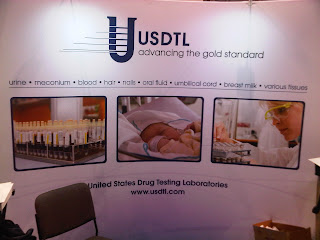
Our Booth back drop.
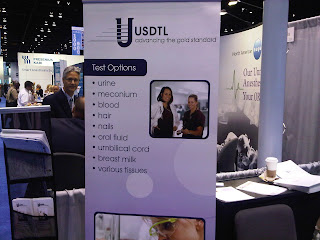
Our side banners.

Victoria Lewis ready to welcome conference goers on Friday.
Patrick Lavelle, our Forensic Account Executive proud of our booth.
Having a great time sharing our story and our testing and addiction program solutions.
Saturday, Oct 8th The Chicago Tribune ran an article entitled: “Proposal to test Lake Zurich High athletes for drugs divides parents: Critics say such programs violate rights; supporters say they save lives.”
The reporter, Lisa Black, spoke about the protestations from parents over privacy rights but schools have historically used random drug testing on students in extracurricular activities. Time and again testing has been shown to improve outcomes. Today they test using hair samples. According to the article:
“Hair samples check for five illegal drugs, which can be detected up to 90 days after use. The school administers about 1,350 tests annually, spending $65 on each— costs covered by tuition…”
This is a basic test panel in use for years. Current testing available includes over 14 types of drugs plus EtG an alcohol biomarker found in hair and nails that can not only detect use, but can detect the difference between binge drinking and social drinking– something that, according to the article, was of concern to parents and administrators alike.
As a local company we specialize in testing children/adults (using nails, hair, blood, oral fluid and urine) and newborns (through umbilical cord tissue and meconium) for exposure to substances of abuse and alcohol. It is our mission to help identify problems early on so that physicians, parents and courts can help lower Fetal Alcohol Spectrum Disorder symptoms as well as catch and possibly reverse addiction problems in teens and adults.
For more information feel free to call Patrick Lavelle, Forensic Account Executive, USDTL, Inc. at 847-375-0770 and check our website: https://www.usdtl.com/
You can read the full article here.
Two days after the press release announcing our new CordStat EtOH assay, USDTL serves it’s first client testing umbilical cord for alcohol biomarkers. Welcome CordStat EtOH customers:
.jpg)
Specimen custodian, Senovia pulled the sample
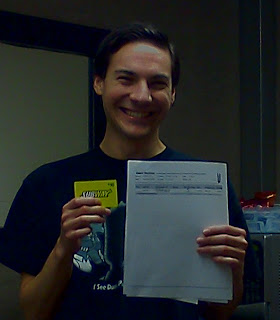
Justin ran the first CordStat EtOH batch
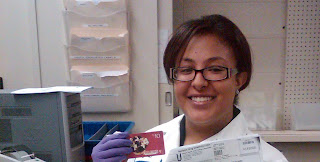.jpg)
Kyla accessioned the specimen.
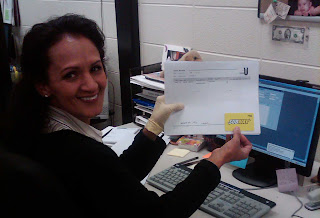.jpg)
Rosie reviewed and posted the result.
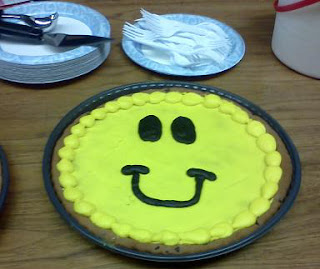
- Hair, Nail, and Umbilical Cord Testing for Phenibut, Medetomidine, and Tianeptine
- Umbilical Cord Tissue Testing for SSRIs
- A Comparison of Turnaround-Times for Two Popular Specimen Types Used for Newborn Toxicology: Meconium and Umbilical Cord Tissue
- Using Umbilical Cord Tissue to Identify Prenatal Ethanol Exposure and Co-exposure to Other Commonly Misused Substances
- Toxicology as a Diagnostic Tool to Identify the Misuse of Drugs in the Perinatal Period
- Specimen Delay
- Drug Classes and Neurotransmitters: Amphetamine, Cocaine, and Hallucinogens
- Environmental Exposure Testing for Delta-8 THC, Delta-9 THC, Delta-10 THC, and CBD
- February 2025 (1)
- October 2024 (5)
- March 2024 (1)
- February 2024 (1)
- January 2024 (3)
- December 2023 (1)


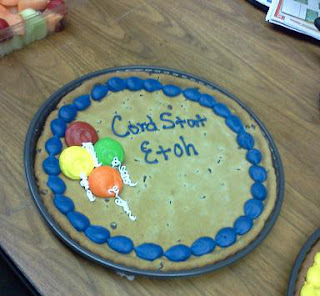
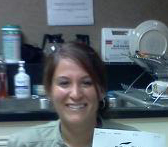.jpg)
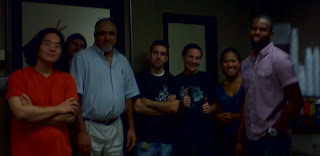
.jpg)
